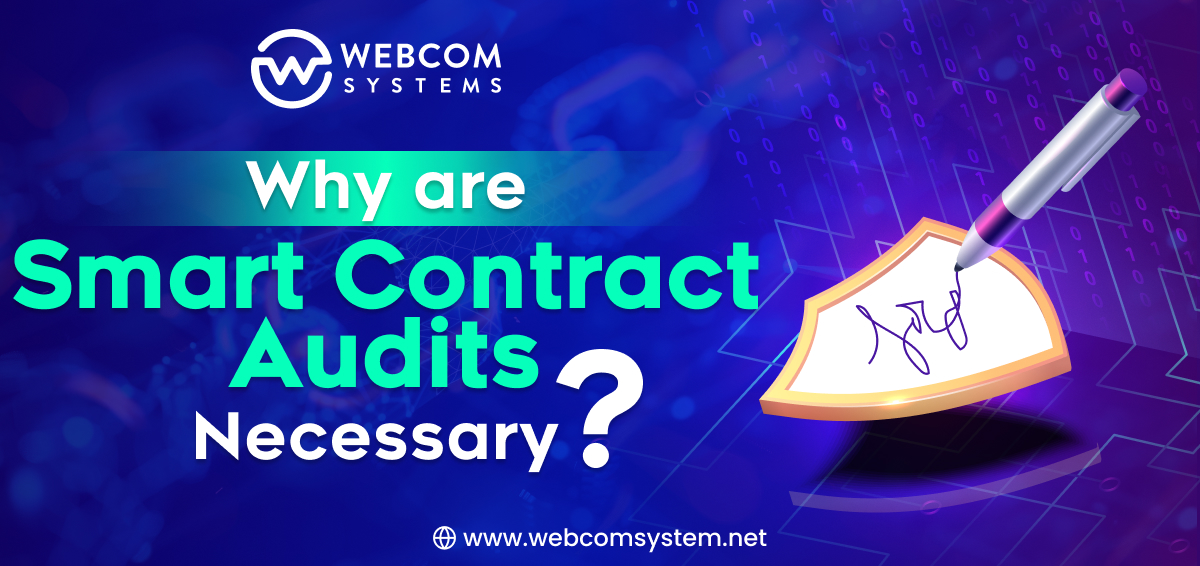Smart contracts play a crucial role in executing transactions on blockchain technology, ensuring these processes are secure, efficient, and tamper-proof. Even a single flaw can cause hefty losses, one of which was seen recently where a flaw in a single smart contract caused a $600 million cryptocurrency heist. That’s why smart contract audits are extremely important to ensure the integrity of transactions and match the precision required to safeguard digital assets. Although there are other options as well for a similar purpose, smart contract audits stand out from the rest to safeguard blockchain systems.
What Are Smart Contracts?
Basically, a smart contract is a self-executing agreement between two people or entities. It follows a certain set of terms written into lines of code. The concept of smart contracts was first proposed by Nick Szabo in the 1990s. He termed it a set of virtual promises that have associated protocols to execute them. Here are some of the functional characteristics of smart contracts:
- Smart contracts are executed automatically without the need for intervention by some other party. Thus, once a preset set of requirements for their activation are satisfied, they serve the intended purpose. For example, smart contracts carry money transfers once the customer signs up for the services and completes the mandatory requirements.
- Smart contract development is carried out through blockchain-specific programming languages such as Solidity, Vyper, etc. Additionally, they can only be used on the blockchain platform that has the capability to execute that particular smart contract.
- Smart contracts cannot be altered after deployment, as they are then stored and replicated on the blockchain’s distributed and immutable ledger. This nature of smart contracts makes them resistant to tampering.
- The terms of execution of smart contracts are specified in digital form. That’s why they are implemented automatically, leading to document registration, funds transfer, issuing a ticket etc.
Why Is It Important To Conduct Smart Contract Security Audits?
Any inefficiency, safety issue, or misconduct in developing or deploying smart contracts could lead to high additional costs. Even a minor error in the coding could make the smart contracts vulnerable to theft as well. For that very reason, as much as businesses understand the importance of smart contracts, they also recognise the requirement of smart contract security audits.
Primarily, smart contract auditing is now crucial for the following reasons:
Security
Defi applications extensively rely on smart contracts, and even minor sensitivity to unauthorized access could lead to consequences that could be extremely catastrophic. As these smart contracts are responsible for carrying out large financial transactions, hackers always look for a smart contract with a loophole to exploit it and fetch millions of dollars in seconds. However, smart contract security audits always check for these loopholes or vulnerabilities to fix them on time and protect them from unauthorized access.
Protecting Reputation
Since Defi platforms facilitate fund liquidity, they must win over customers’ trust to have a reputation in the industry. The clients could only choose to use the DeFi platform’s services if they are certain that their money is secure there. A well-audited smart contract can save it from exploitation, hacks, or mistakes that could ruin the platform’s reputation. Here, the smart contract audit can provide this confidence to the customer and build as well as protect the reputation within the DeFi community.
Avoiding Costly Bugs
Smart contract development requires great precision for its successful execution. However, even experienced smart contract developers can make errors and intentionally attract bugs into smart contracts. It could further lead to financial losses, unwanted actions, and eventually reputation damage. However, a beforehand audit of a smart contract could detect the bugs earlier before final deployment and fix them on time to avoid expensive post-launch fixes.
Regulatory Compliance
Many industries, whether finance, healthcare, Real Estate or any other that deals with crucial information, demand the platforms to follow strict regulations and standards. Any breach of these regulations and standards could lead to legal as well as security issues. Smart contract audits checks and makes necessary fixes to ensure compliance with these regulations and standards.
Improve Credibility
Due to the rise in security concerns, customers always look for DeFi platforms that undergo several security audits. By mentioning that smart contracts are reviewed and fixed through smart contract audits, service providers can thus add credibility to both their projects and services. Investors, users, and business partners take audits as a sign of credibility, and it eventually helps to attract more business.
How Does Smart Contract Security Audit Work?
Smart contract security audit follows a step-by-step approach, which is mentioned as follows:
Gather Documentation
To initiate the auditing, the smart contract auditors need to first understand the information regarding the code’s goals, scope, and implementation. For that, they would gather the codebase, architecture, whitepaper, and related documents.
Automation Testing
In the next step, the auditor would carry out automated testing in which a formal verification engine would understand the status of the smart contract. After its evaluation, it would point out the possible issues concerning security or even the functioning of the smart contract. For better clarity, the auditor combines automated testing with specific integration testing, penetration testing, and union testing as well.
Manual Inspection
Where automated testing provides the basic idea about the potential issues and covers larger batches, manual testing uses a more in-depth approach. The auditor would carry out manual testing to find vulnerabilities and even carry out re-testing and re-evaluation to confirm the results. Smart contract audit companies have specialized teams of human engineers, skilled and experienced in checking the issues with the contract’s code, logic, or architecture. Even with technically correct code, they are able to quickly identify the presence of bad coding practices that lead to automated testing failures and compromise contract security.
Sorting Out Contract Errors
Code vulnerabilities and code exploitation are key components of measuring the degree of risk associated with code quality and related security issues.
Code vulnerabilities can be categorized into four levels of severity. The first one is informational errors, which don’t cause immediate dangers but should be eliminated to maintain code security. The second one is the low-severity code bugs that could cause minor or non-essential issues or small difficulties. Medium code defects, on the other hand, can affect business financially, but the customer data is not much in danger. Lastly, high-security defects put user as well as business data at risk, leading to legal and financial consequences.
In addition to code vulnerabilities, code exploitation is also crucial to consider. Low-level risks stem from poor coding practices that can be easily exploited using publicly available tools or automated methods. Medium-level risks require hackers to have a good understanding of blockchain security and more complex systems. However, high-level risks typically involve gaining inside access to the system and diving deep into the core code, posing a serious threat to the system’s security.
Creating Audit report
By sorting out the different contract errors, all the possible flaws and bugs are summarized to have a complete evaluation of the code. All the detected vulnerabilities are sorted from high-risk to just informational.
After this, the vulnerabilities are addressed before the final deployment. Until all the major issues are fixed, audited again, and removed, they aren’t marked as resolved.
Conclusion
Blockchain is a relatively new technology that relies heavily on smart contracts. Further, smart contract audits ensure their security, which is essential for maintaining trust in digital transactions. Security flaws in these smart contracts could lead businesses to lose the entire contract, and all the crucial assets are managed through the contract.
Smart contract audits aid in preventing these issues and costly breaches and building trust in the tech world. For that, businesses should partner with smart contract audit companies, who are experts in smart contract auditing to detect, fix, and ensure the security of blockchain projects.
Recommended Read: The Power of Tokenization for Protecting Sensitive Data




